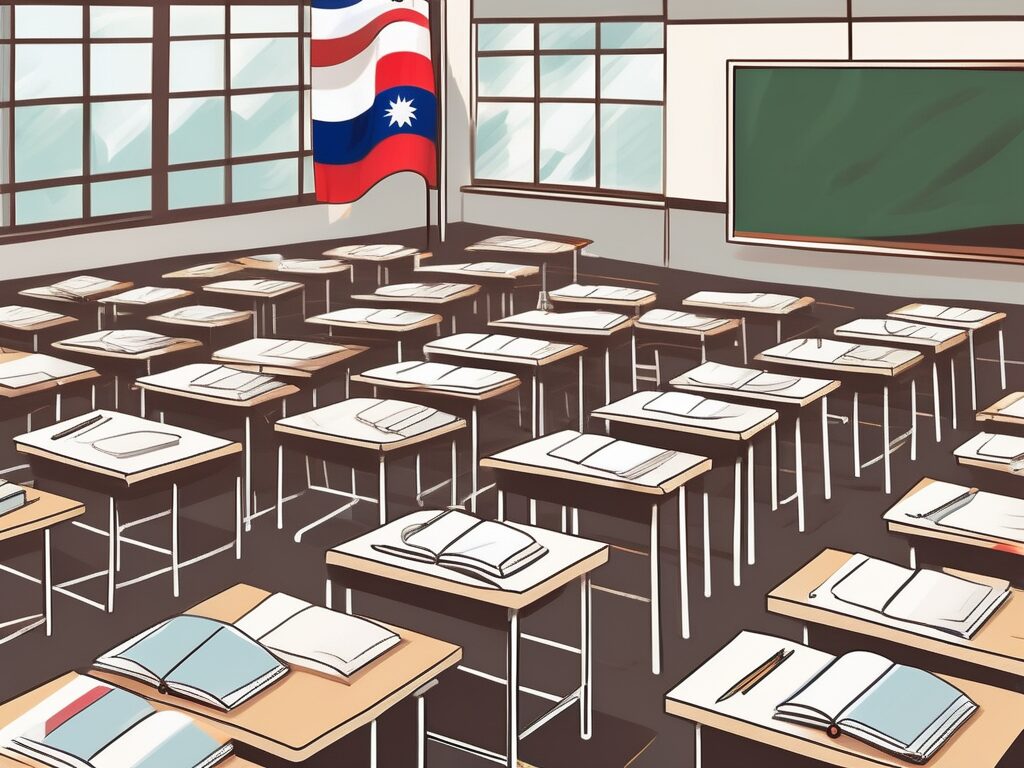Bangkok, the bustling capital of Thailand, is a vibrant melting pot of cultures. This diversity is reflected in its classrooms, which are increasingly multicultural. While this diversity brings a wealth of benefits, it also presents a unique set of challenges. In this piece, we’ll delve into these challenges and explore how they can be addressed.
Language Barriers
One of the most significant challenges in multicultural classrooms is language barriers. With students hailing from various linguistic backgrounds, communication can be a hurdle. This is akin to trying to solve a jigsaw puzzle with pieces from different sets; it’s not impossible, but it requires a lot of effort and patience.
Teachers may struggle to convey instructions, while students may find it difficult to express their thoughts or understand lessons. This can lead to a sense of frustration and isolation among students, hindering their academic progress and social development.
Overcoming Language Barriers
One way to overcome language barriers is through bilingual education, where instruction is provided in two languages. This approach can help students grasp the curriculum while also improving their proficiency in the school’s primary language.
Another strategy is to use visual aids and interactive activities to facilitate understanding. Just as a picture is worth a thousand words, these tools can convey complex ideas in a simple and engaging manner.
Cultural Differences
Cultural differences can also pose a challenge in multicultural classrooms. Students from different cultural backgrounds may have varying beliefs, customs, and learning styles. This is similar to a symphony orchestra with musicians playing different instruments; while the diversity can create a rich sound, it also requires careful coordination.
These differences can lead to misunderstandings and conflicts. For instance, some cultures may value group harmony over individual achievement, which can clash with the competitive nature of Western education systems.
Respecting Cultural Differences
Creating a culture of respect and understanding is key to managing cultural differences. This involves acknowledging and valuing the unique contributions of each student, much like appreciating the distinct sound of each instrument in an orchestra.
Teachers can also incorporate culturally responsive teaching practices, which involve tailoring lessons to reflect the cultural backgrounds of students. This can make learning more relevant and engaging for students, fostering a sense of belonging and boosting academic achievement.
Social Integration
Social integration can be a challenge in multicultural classrooms. Students from minority cultures may feel excluded or marginalised, akin to being the only one dancing to a different tune at a party. This can affect their self-esteem and motivation to learn.
Promoting Social Integration
One way to promote social integration is through cooperative learning activities, which encourage students to work together and appreciate each other’s strengths. Just as a dance troupe moves in harmony, these activities can foster a sense of unity and mutual respect among students.
Another strategy is to celebrate cultural diversity through events and projects. This can help students learn about each other’s cultures, breaking down stereotypes and fostering mutual understanding.
Conclusion
While multicultural classrooms in Bangkok present unique challenges, they also offer opportunities for growth and learning. By addressing language barriers, respecting cultural differences, and promoting social integration, we can create an inclusive and enriching learning environment for all students. Just as a colourful tapestry is more beautiful for its diversity, so too can our classrooms be enriched by the varied cultures of our students.
Elevate Your Teaching Career with IPGCE
As you navigate the complexities of multicultural classrooms in Bangkok, consider the transformative power of the International Postgraduate Certificate in Education (iPGCE). This Level 7 programme is your gateway to overcoming the qualification barriers that hold back 80% of aspiring international educators. With iPGCE, you’re not just enhancing your credentials; you’re joining the UK’s #1 Teacher Training Course and paving the way for a 50% increase in interview callbacks. Embrace the opportunity for career progression, with a 45% boost in promotion rates and a 30% salary uplift. Connect with a global network of professionals, gain a profound understanding of international curricula, and balance your professional development with your current commitments through our flexible online study options. Don’t let the challenges of a diverse classroom limit your potential. Join the IPGCE program today and become the educator you aspire to be.

